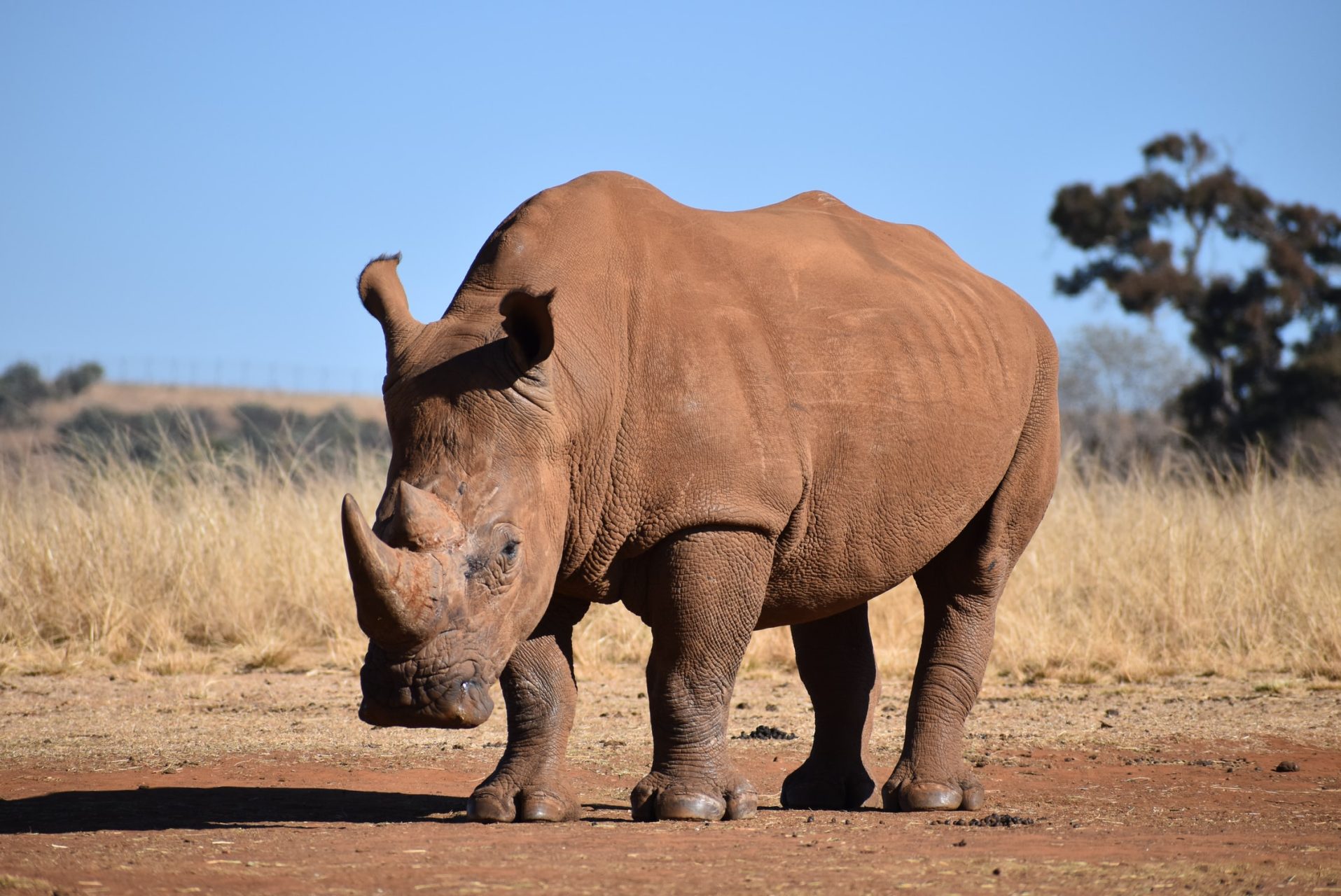Professor Keith Somerville gives his expert comment on the announcement of the most recent rhino poaching figures.
On 8 February, South Africa’s Minister of Forestry, Fisheries and the Environment, Barbara Creecy, announced the country’s latest rhino poaching figures, with 451 rhinos killed for their horns in 2021. While numbers poached had fallen in 2020, the figures for 2021 had increased, and showed that the proportion killed on private reserves/farms had risen. Professor Keith Somerville of the Durrell Institute of Conservation and Ecology (DICE) said:
‘209 rhinos were poached for their horns in South African National Parks (SANParks)’ reserves in 2021 – all of those killed in Kruger National Park. Creecy lauded the achievement that ‘none of SANParks’ smaller rhino parks experienced any rhino losses from poaching in 2021, in comparison to the two rhino that were poached in 2020.’
‘But behind the self-congratulatory tone is the terrible statistic that poaching may be decreasing because there are fewer and fewer rhinos to kill for their valuable horns. In 2009, there were 21,087 rhinos in South Africa and 122 were poached – 0.57% of the population. This means that reproduction would have outweighed poaching and so there was annual increase in numbers. In 2021, in Kruger alone, which has 3,549 white rhino and 268 black, a poaching level of 209 is 5.46%. Rhinos don’t breed until about 5 years of age, and females can produce calves every 2.5-3 years. This means a high poaching rate allows no time for recovery of numbers.
‘While it is good that the numbers poached hasn’t gone back up to pre-Covid levels, there are three worrying aspects to the figures that take some of the gloss from Creecy’s attempt to be upbeat.
‘First is the increase in poaching on private reserves or game farms. Clearly improved security on SANParks’ reserves is deterring poaching, but the poachers and the criminal syndicates who send them out to kill rhinos for their horns are proving flexible in their strategy and are shifting raids to private reserves, where owners might have less anti-poaching capability. Most of the rhinos poached on private properties were killed in Limpopo and Mpumalanga provinces.
‘Secondly, while arrests are made regularly of the poachers – 189 in 2021 – the South African justice system is slow, inefficient and in places corrupt. Of the 189 arrested last year only 38 have so far been brought to court, though 37 of them were convicted. Poachers, and particularly the criminal syndicate members who direct them, often stay free on bail for years and can continue poaching, trading or smuggling illegal horns.
‘Thirdly, there has been a sharp spike in poaching in recent months. In the first two weeks of December 2021, 24 rhinos were poached according to the Department of Forestry, Fisheries and the Environment. They were in KwaZulu-Natal (six), the Kruger NP (seven), the Western Cape (four) and Mpumalanga (seven). Replicated over a year, this would mean 624 killed in a year – above the 2019 figure.
‘There is still clearly a hard battle ahead to protect South Africa’s white and black rhino, to catch and jail poachers and their criminal bosses and to cope with what appears to be continuing high demand for horn in markets in China, Vietnam and elsewhere in east Asia, where prices for the horn are in the range of $40-65,000 per kg.’

